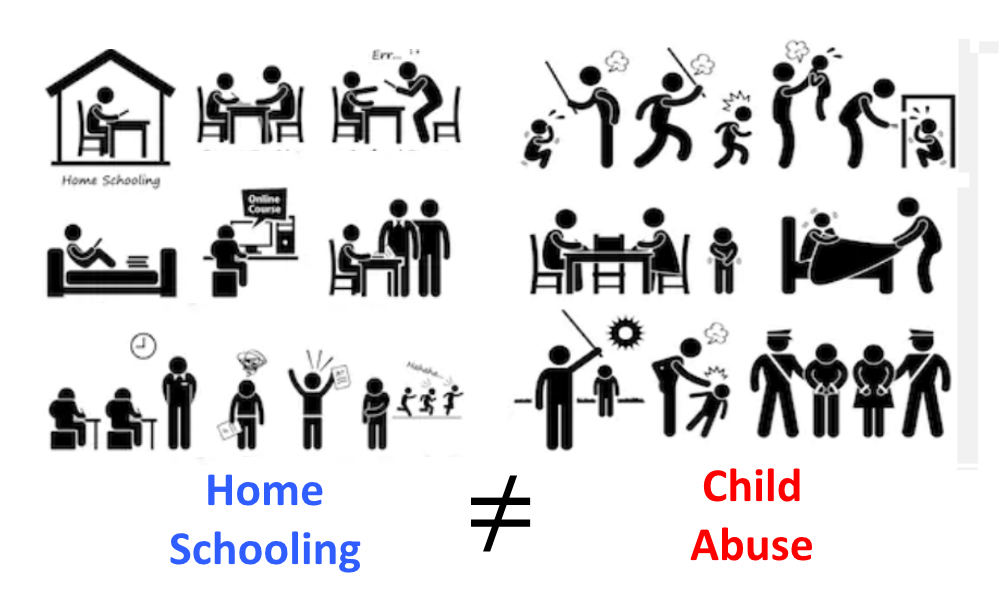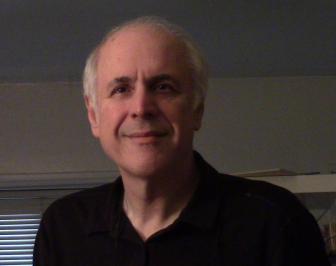 ILLUSTRATION: GWENETTE SINCLAIR
ILLUSTRATION: GWENETTE SINCLAIR
To the cliché “hard cases make bad law” allow me to add a corollary: Horror-story cases make horrible law.
It’s hard to imagine a case of abuse more horrifying than the one involving 13 children and young adults, revealed this week in Riverside County, California. So it’s not surprising that in our revulsion and our desperate desire to do something, anything, we’re getting some bad ideas.
As always after a high-profile tragedy, there have been calls for anyone and everyone to report anything and everything to child protective services. I’ve written before about why that always backfires.
But this time, because the children in this case were home-schooled (technically, the parents created a so-called “private school” in which only their children were “enrolled”), we also see calls to require that everyone who home-schools their children produce the children for annual inspections by “mandated reporters” of child abuse — doctors and teachers. Rachel Coleman and Kathryn Brightbill of the Coalition for Responsible Home Education issued such a call in an op-ed column in the Los Angeles Times.
A Times editorial suggested something even worse: Government inspectors would march into the home of every home-schooling parent each year in part to review student work but also to “interview students privately so that they could feel safe talking about any abuse …”
For everyone who is not a home-schooler that can happen only after they are reported to a child abuse hotline and the child protective services agency accepts the call for investigation. So the Times is suggesting that all home-schoolers automatically be treated as equivalent to suspected child abusers.

The op-ed is filled with horror stories followed by claims such as citing a study (involving a tiny sample of 28 children) that found that 76 percent of those 28 severe abuse victims had been withdrawn from school or never enrolled. That juxtaposition makes it easy to get the impression that 76 percent of home-schoolers are torturing their children — especially when the authors add that torture of children by home-schoolers is “all too common.”
By definition that “all too common” phrase is, of course, true. Because even one case of child torture is “all too common.”
But in any given year, even if you take the worst abuse of all — the official number of child abuse fatalities — and double it, about 99.9958 percent of American children are not killed by a parent or other caretaker. In other words, the chances of a parent or caretaker killing a child this year are less than the chance of finding an impurity in Ivory Soap.
So while each is the worst kind of tragedy, the number of cases in which children are killed or tortured by parents each year is infinitesimal. The argument made by those who want to spy on all home-schoolers is that it is possible, though by no means clear, that, among home-schoolers, the number is slightly less infinitesimal.
As for torture cases, a clinical forensic psychologist told the Riverside Press-Enterprise that cases such as the one in Riverside County are “very, very rare.” That makes such cases no less horrible. The only acceptable goal for such horrors is zero. But this means knee-jerk “solutions” that place every home-schooling family under suspicion will make everything worse, and move us further away from that goal.
As with so many other well-intentioned proposals to intrude on families, the problem with this one is the harm it would do to children:
- The “mandated reporter” knows that the child is being brought before him or her — or the inspector is entering the home itself — specifically to see if the child is being abused or neglected. That creates an inherent bias toward finding such maltreatment, whether it’s really there or not.
- To the extent that the mandated reporter has been trained at all, it often involves broad, vague lists of “symptoms” or “warning signs.” One website alone lists 77 different “signs” that could be child abuse. They also could have many other causes. At least one of these “signs” probably could be found in almost any child at some point in that child’s life.
- The mandated reporter knows that if s/he fails to report and then it turns out the child really was abused s/he could face dismissal and perhaps even criminal penalties. There is no penalty for a false report made in good faith.
- Children will know the purpose of these visits, and they will sense the tension they cause in their families. That makes them, inherently, an act of emotional abuse against the children. As three of the leading child welfare scholars of the 20th century, Anna Freud, Joseph Goldstein and Albert J. Solnit wrote, in calling for far higher standards before ever intervening in families: “Children react even to temporary infringement of parental autonomy with anxiety, diminishing trust, loosening of emotional ties, or an increasing tendency to be out of control.”
The level of intrusion and, at a minimum, emotional harm increases exponentially if a well-meaning but false report from the mandated reporter is accepted for investigation, often leading to a traumatic interrogation of a child and a stripsearch.
Perhaps worst of all, the proposal won’t even help find those extremely rare cases of child torture. On the contrary. All those additional false and trivial reports filed by mandated reporters will only further overload child protective services, making it more likely that child protective services workers will overlook children in real danger.
The singling out of home-schoolers is odd for other reasons as well.
- The children most at risk of abuse or neglect are the youngest. So the same logic behind this proposal requires that every child from birth to at least kindergarten age also be presented for periodic inspection.
- Some of the horrible cases cited in the Times op-ed involve parents who adopted the children. Yet there is no mention in the op-ed of creating new means to spy on adoptive parents. (Such proposals have cropped up elsewhere, and they are just as wrong.)
None of this means home-schooling should be unregulated. There should be whatever regulation is needed to be sure home-schooled children are getting an adequate education. But that’s not the same thing as setting up a regime of domestic spying on a disfavored group.
And yes, for the child welfare establishment, which tends to lean left politically (as do I), home-schoolers are a disfavored group.
The real reason cracking down on home-schoolers has such appeal, particularly for some of my fellow liberals, is because, well, “we” all know what “they” are like. Although all sorts of people choose home-schooling for all sorts of reasons, “home-schooler” immediately conjures up an image of right-wing fundamentalists.
So try this. Whenever you read a proposal for compulsory inspections of the children of home-schoolers, try substituting the word “terrorism” for child abuse and “Muslim” for “home-schooler.” Then see if the idea is still so appealing.
Richard Wexler is executive director of the National Coalition for Child Protection Reform.





























